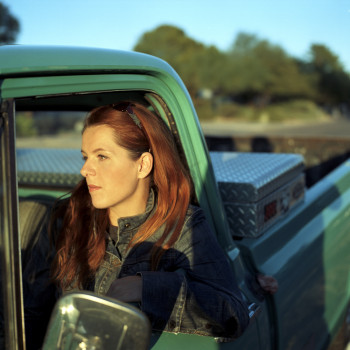Nietzsche Is a Punk Rocker
It is a great world in which the names of Nietzsche and Kant can be invoked in a discussion of popular music.
It is a great world in which the names of Nietzsche and Kant can be invoked in a discussion of popular music.
Twelve albums (and one stray song) from 2005 that I loved, most of them in the indie-rock vein and all of them a bit off the beaten path.
When OK Go turned a backyard rehearsal tape into the video for “A Million Ways,” it was the act of a rock band that’s not afraid to have fun. While critics fawn over dance-rock and new-new-wave acts such as Franz Ferdinand, Bloc Party, and The Killers – with good reason – OK Go is simply one of the world’s most enjoyable bands.
 Neko Case is a siren whose seductive voice might be the single most alluring instrument in music today – clear, robust, sexy, self-possessed, and expressive, with an endearing hint of nasally imperfection. On her solo albums, that voice is the centerpiece of beautifully arranged country-tinged songs, without a hint of irony. They’re dark, atmospheric, and – at their most world-weary – nearly spectral in their power to haunt. And the 34-year-old singer/songwriter can belt without any sign of strain, or lay on the syrup of an old-time country crooner.
Neko Case is a siren whose seductive voice might be the single most alluring instrument in music today – clear, robust, sexy, self-possessed, and expressive, with an endearing hint of nasally imperfection. On her solo albums, that voice is the centerpiece of beautifully arranged country-tinged songs, without a hint of irony. They’re dark, atmospheric, and – at their most world-weary – nearly spectral in their power to haunt. And the 34-year-old singer/songwriter can belt without any sign of strain, or lay on the syrup of an old-time country crooner.
Junior Brown is about as matter-of-fact as people get. On record and in interview, he sounds as excitable as a corpse. About his upcoming live record, due in September? He says it’s “just to answer some requests. ” About his role as narrator in the new Dukes of Hazzard movie, taking over where Waylon Jennings left off on the TV series? “They just offered it to me.” About the instrument he invented, the double-necked guit-steel? “I’d been thinking about something like that.”
When Eric Mardis was a teenager, he dreamed the way most adolescent boys dream: “I totally wanted to be a rock star,” he said in a phone interview, “a cross between [Deep Purple’s] Ritchie Blackmore and [Metallica’s] Kirk Hammett.” These days Mardis – who is now 33 – has a rock band and a jazz quartet, but his primary job is not at all what he imagined. He speaks of it almost as if he were at a 12-step meeting – somewhat shamefully: “I play banjo in a neo-whatever bluegrass band.” That would be Split Lip Rayfield.
If you ever engage Carl Finch in a discussion about the health or politics of polka, watch out. And do not make any polka jokes. The singer/guitarist/accordionist/keyboardist for the Texas-based band Brave Combo is passionate about his polka, and he can work himself up into such a froth that you might mistake his tone for anger.
Lyle Lovett has too much Texas in him to break onto the pop charts, but his soul wanders too far afield for him to make much of a mark in country. He loves the fiddle and slide guitar, but also the brass and gospel, and he has a perfectionist streak that makes him better suited to detail-rich pop songs and austere, aching ballads. He should be a hero to the alt-country generation, but he’s too polished.
Culture Snob favorite Fiona Apple apparently is being held hostage by her label. Actually, her record is, and some fans are miffed and demanding the CD’s release. Extraordinary Machine was finished in 2003 and deemed not commercial enough by Sony Music/Epic Records. A protest action is planned for the week of January 24.
Butchies, The, Make Yr Life, PJ Harvey’s Uh Huh Her, Tift Merritt’s Tambourine, Probot, and Annie Quick’s Bigger